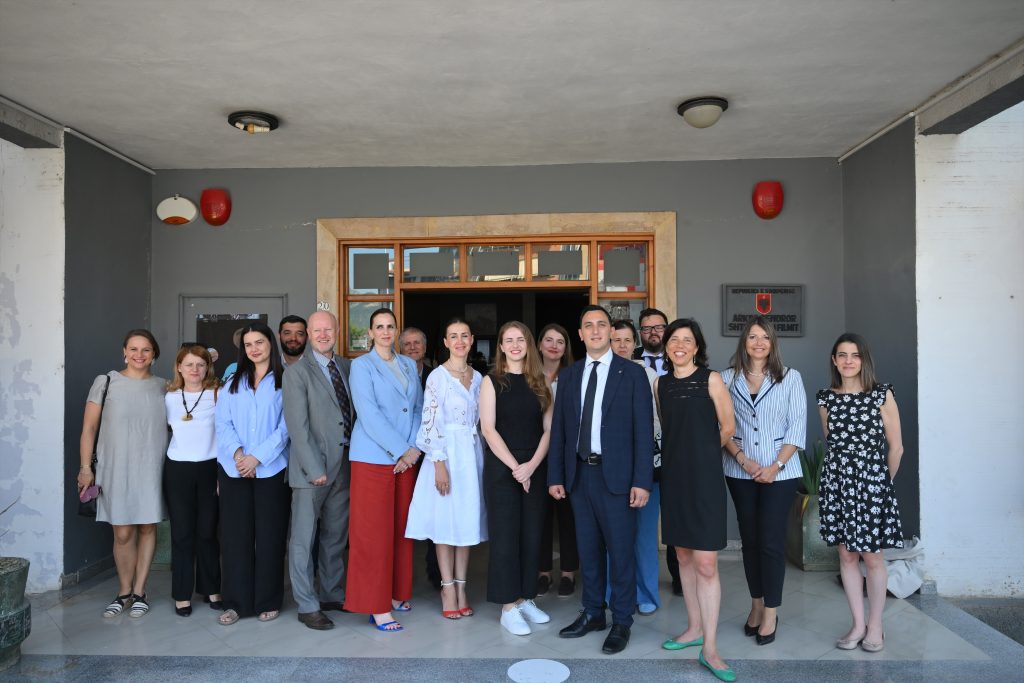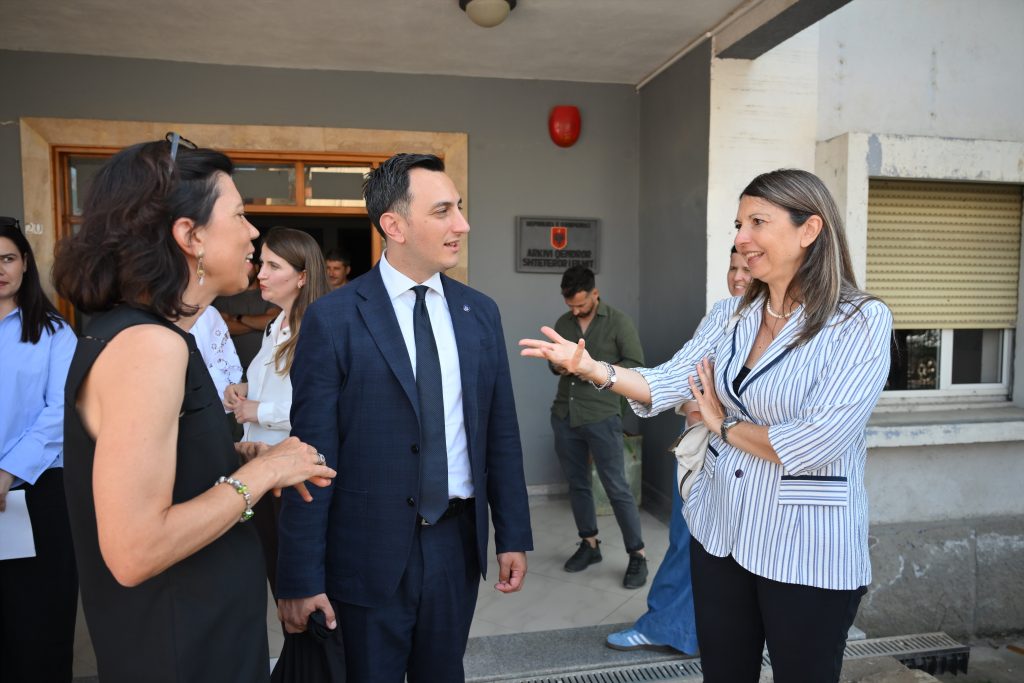EU Commissioner Micallef Visits EU4Culture programme sites in Albania
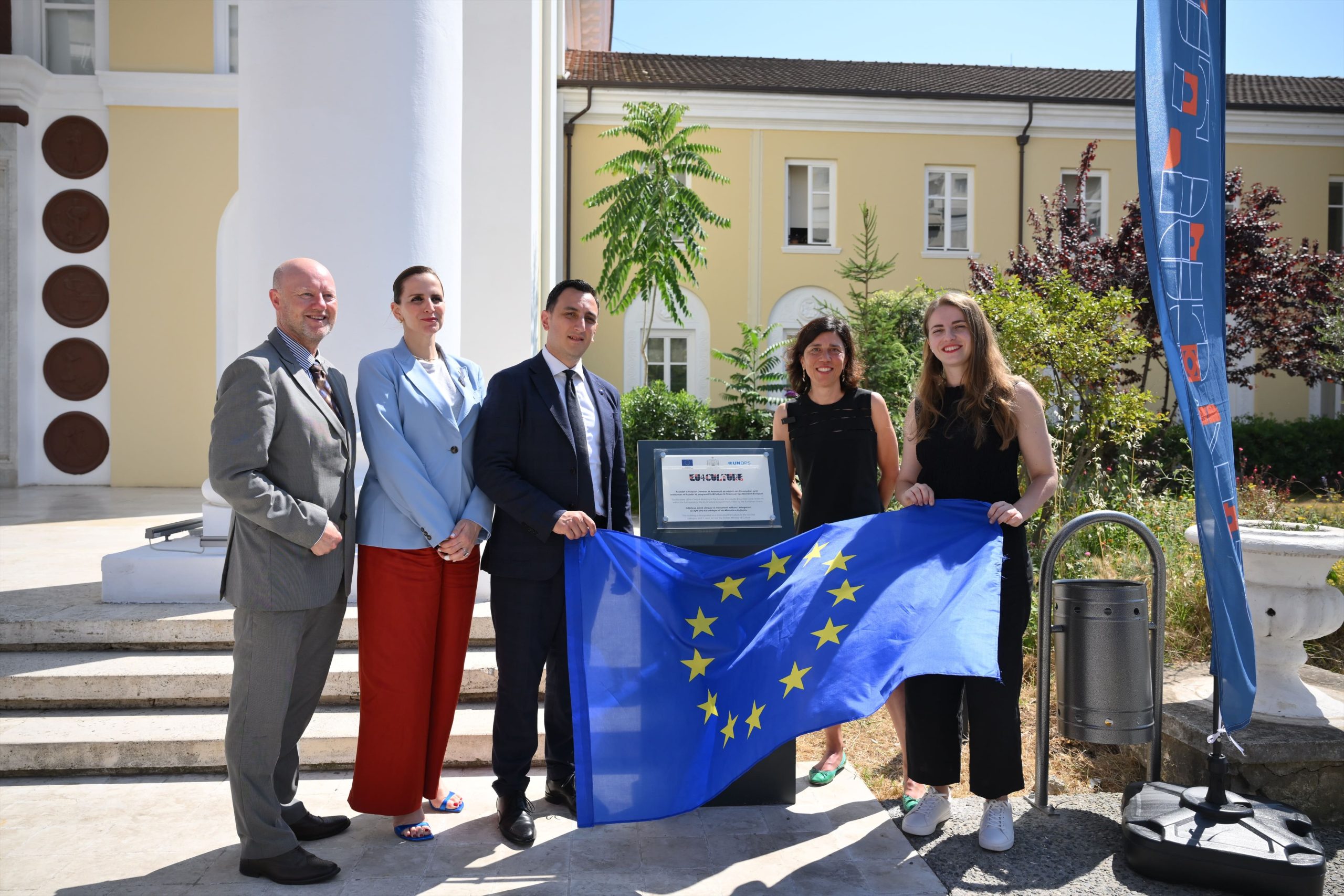
European Union, UNOPS, and Ministry of Economy, Culture and Innovation marked another milestone at the restored former Kinostudio facade and upgraded National Film Archive
As part of his first official visit to Albania, Mr Glenn Micallef, European Commissioner for Intergenerational Fairness, Youth, Culture and Sport, visited two key cultural heritage sites supported by the EU4Culture programme: the restored façade of the former Kinostudio building and the National Film Archive which has received state-of-the-art digitization equipment.
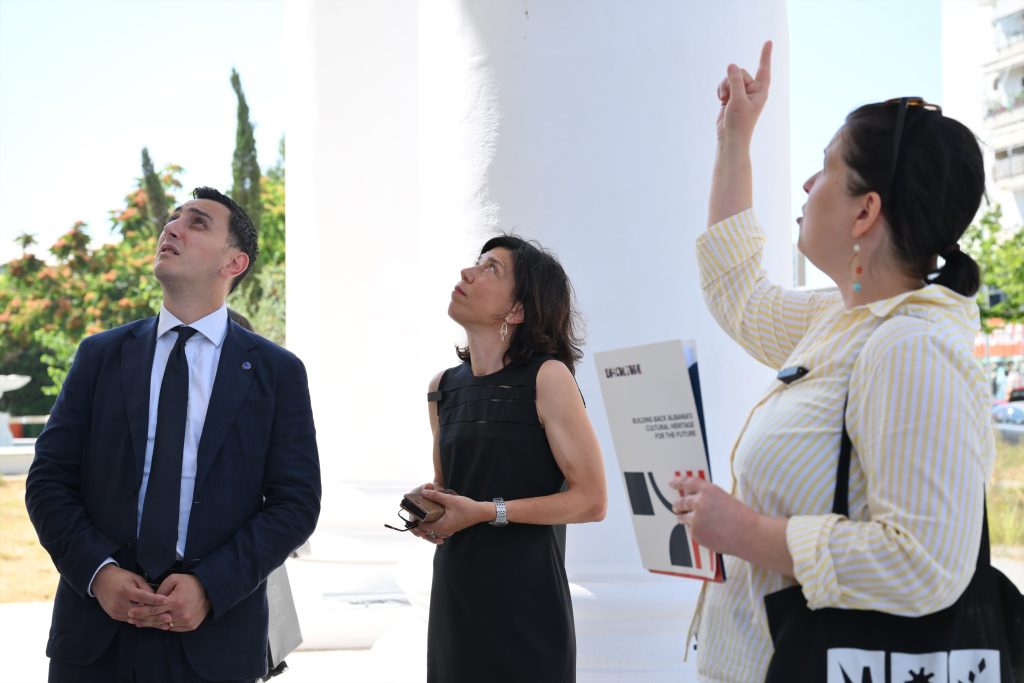
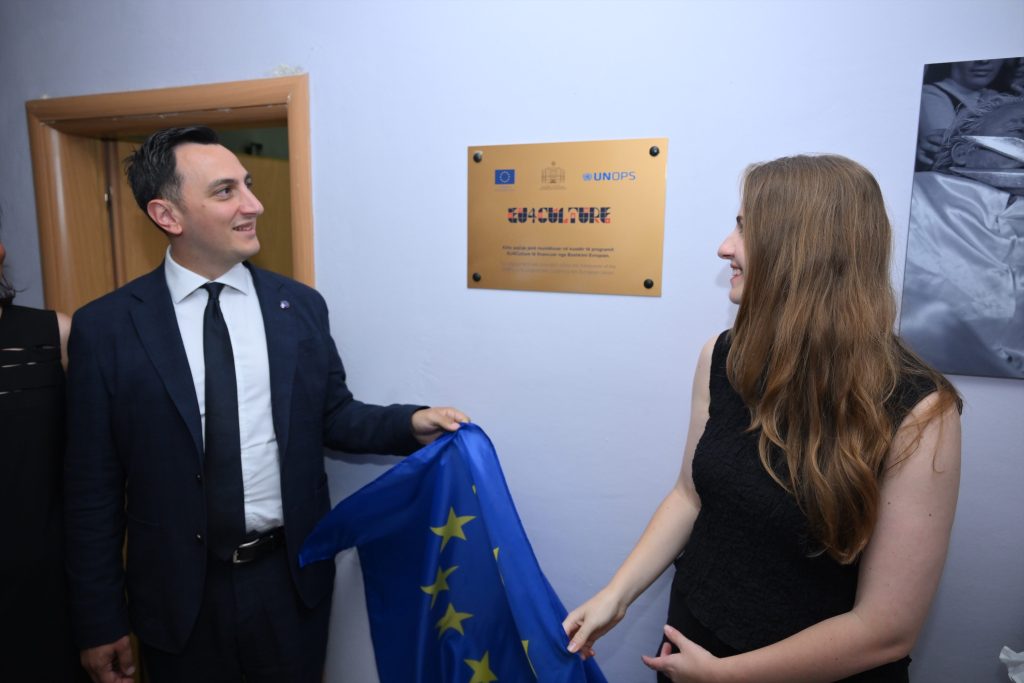
The visit was marked by a joint inauguration event attended by national and international stakeholders, including Ms Lira Pipa, Deputy Minister of Economy, Culture and Innovation; Mr Hubert Perr, Head of Cooperation at the Delegation of the European Union to Albania; and Ms Sabine Kania, UNOPS Country Manager for Albania and Kosovo, alongside representatives of cultural institutions, and local authorities.
“This is my first mission as European Commissioner to the Western Balkans, and I am particularly glad that Tirana, Albania is my first stop. I’m proud to mark the successful completion of two key EU4Culture actions, the restoration of the former Kinostudio façade and the handover of equipment to the National Film Archive. This investment reflects the EU’s strong commitment to preserving Albania’s cultural legacy and highlights our solidarity. The promotion, protection, and preservation of cultural heritage is a political priority for me and will be a cornerstone of the upcoming Culture Compass for Europe.” –Mr Glenn Micallef, Commissioner for Intergenerational Fairness, Youth, Culture and Sport
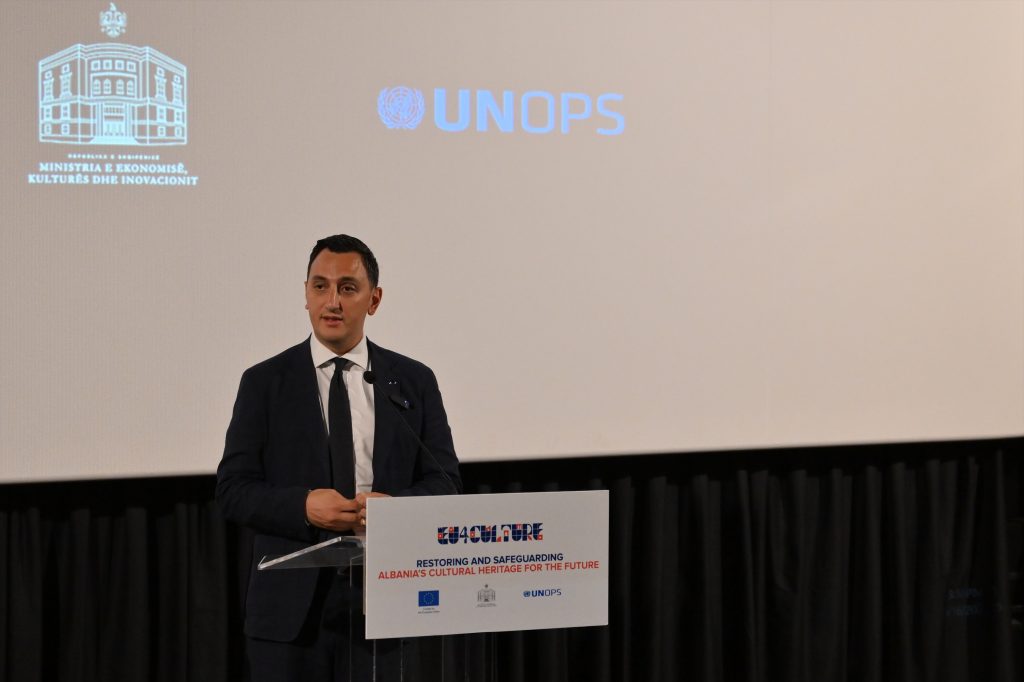
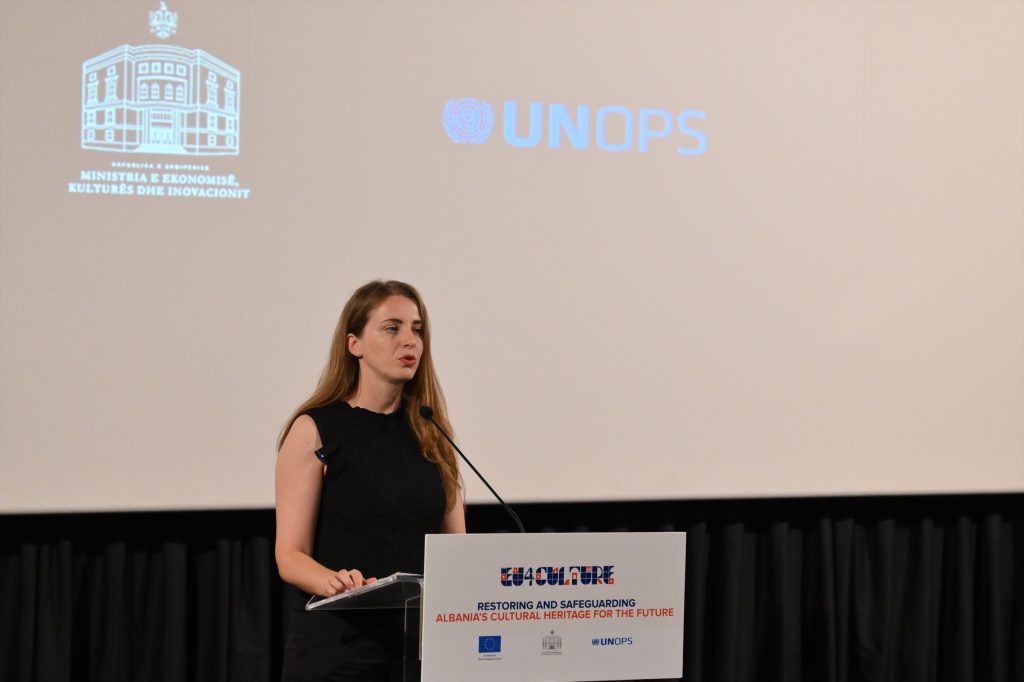
“The restoration of the former Kinostudio and the Central Film Archive is not just an investment in buildings, but an act of renewal of our collective memory and a bold step towards the future. These historic spaces are being transformed into centers of creation, education and international cooperation, proving that culture is not a luxury, but a vital infrastructure for a society that aspires to be open, developed and connected to its roots. -Ms Lira Pipa, Zëvendësministre e Ekonomisë, Kulturës dhe Inovacionit
“The Kinostudio and the National Film Archive are two important institutions that represent Albania’s rich cinematic past and its cultural resilience. The interventions by the EU4Culture programme, through the generous support of the EU, contribute to making these sites ready for the future. At UNOPS, we are privileged to help bridge memory with innovation, and culture with sustainable development.” – Ms Sabine Kania, UNOPS Albania and Kosovo Country Manager.
These interventions are part of EU4Culture, a European Union-funded programme implemented by the United Nations Office for Project Services (UNOPS) in partnership with the Ministry of Economy, Culture and Innovation (MEKI). The programme aims to restore and promote Albania’s rich cultural heritage, contributing to the country’s sustainable social and economic development.
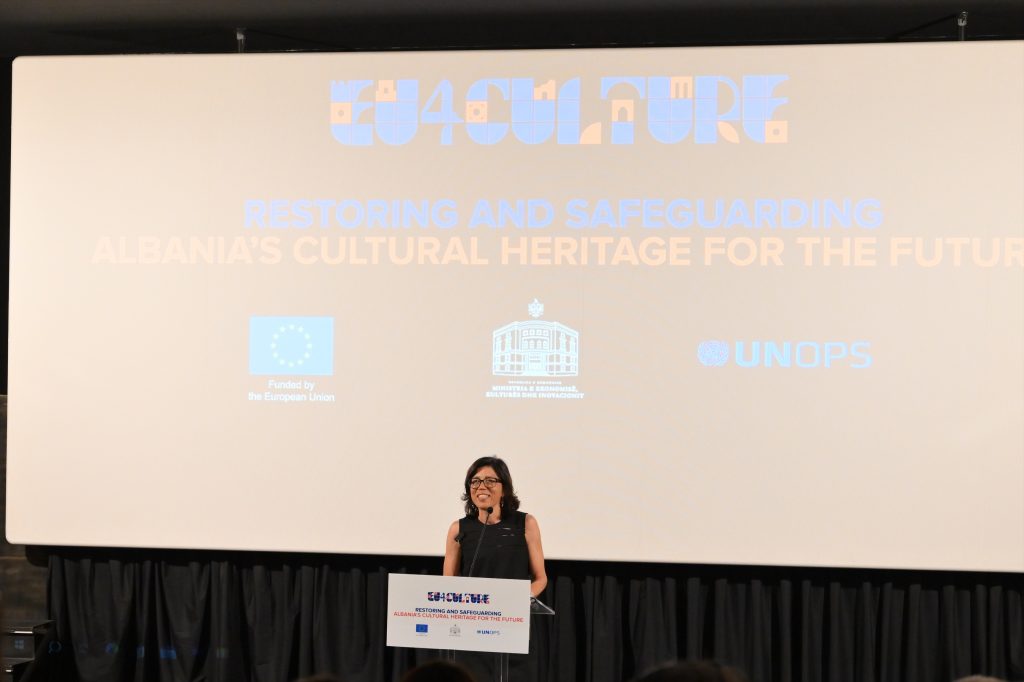
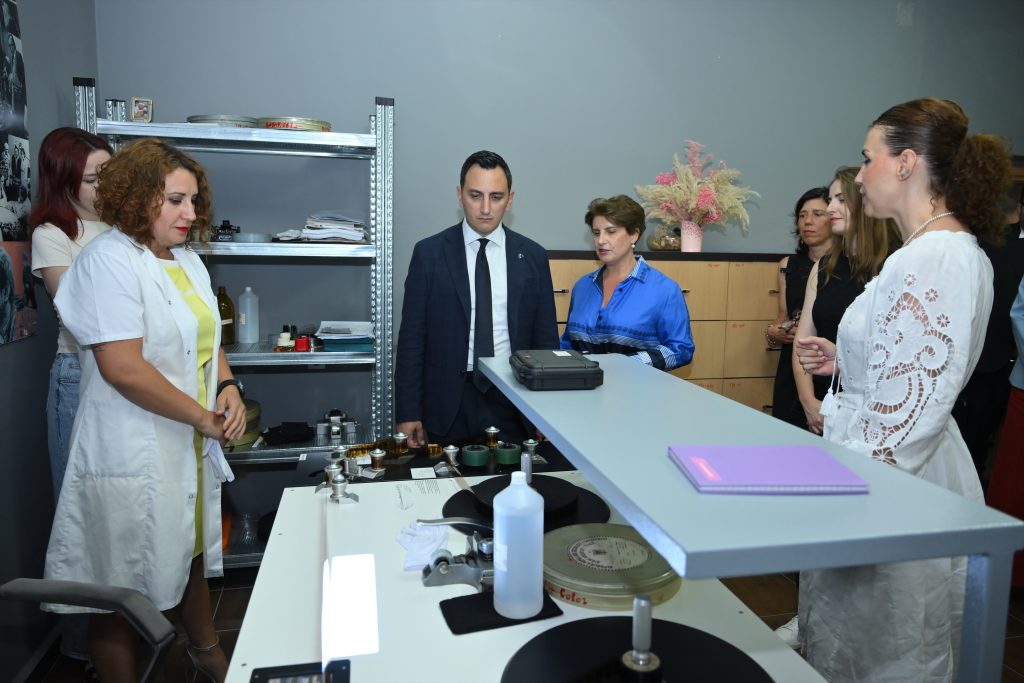
As part of the EU4Culture programme, the former Kinostudio building, an emblematic cultural landmark, underwent conservation works. These included restoration of its historic façade, repairs to earthquake-related damage, and infrastructure upgrades. The works, valued at EUR 376,000, were implemented from March 2024 to March 2025.
Built in the early 1950s, the Kinostudio building served as the headquarters of “Shqipëria e Re”, Albania’s former state film production company. Today, it is officially recognized as a Monument of Culture of Second Category, owing to its architectural and cultural significance.
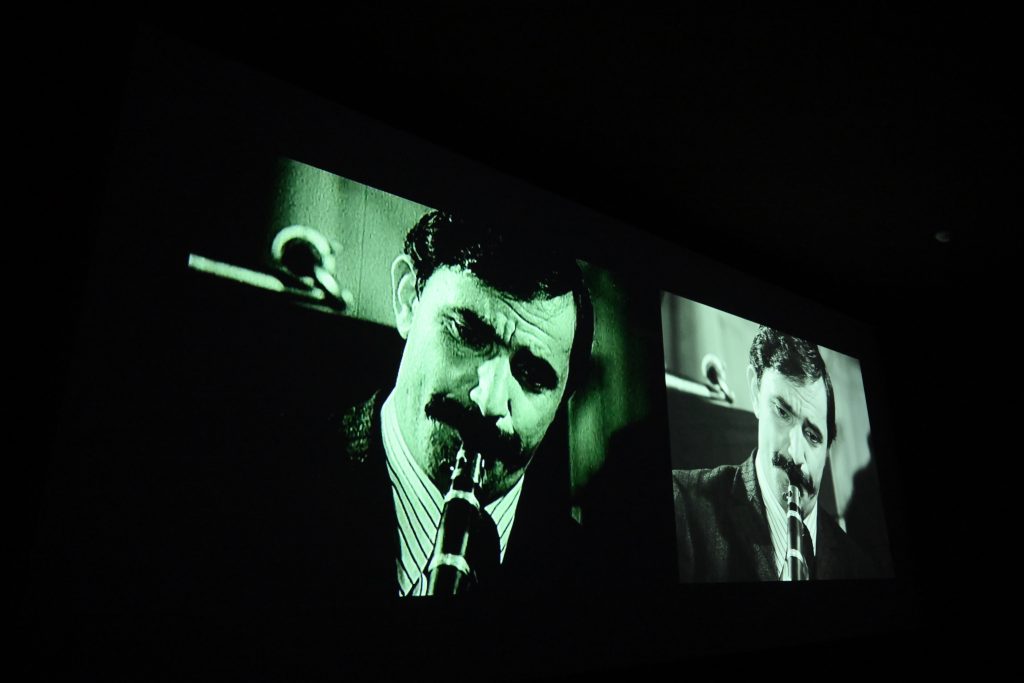
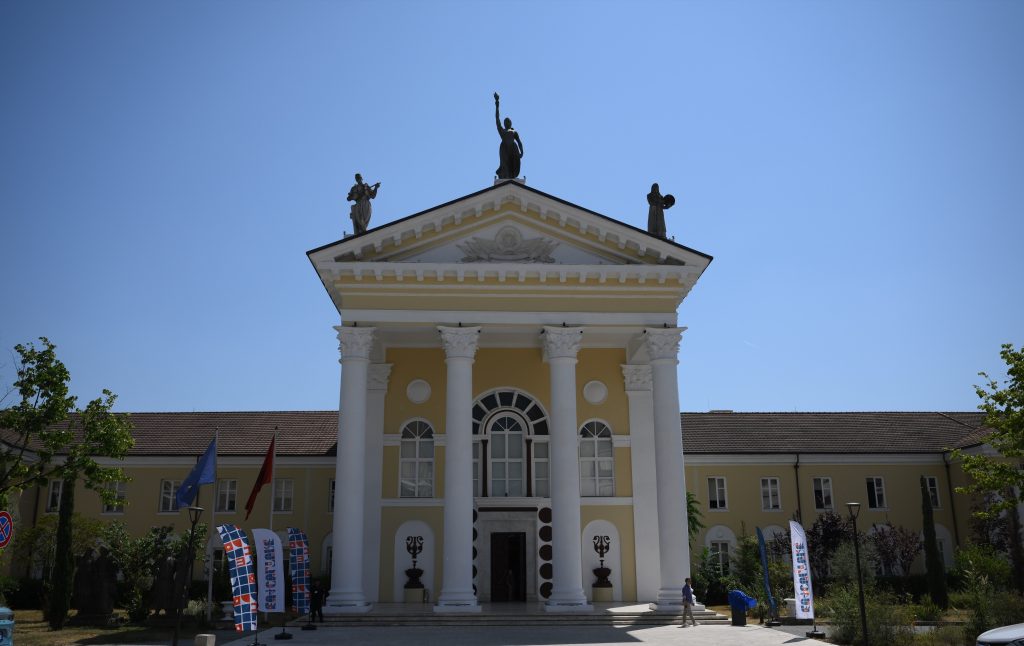
Nearby, the National Film Archive received approximately EUR 100,000 worth of modern digitization and preservation equipment through EU4Culture, significantly boosting its capacity to protect fragile audiovisual materials and improve public access to archival content via digital platforms.
Founded in 1947, the Archive houses over 4,330 audiovisual works including films, documentaries, animations, and rare historical footage dating back to the 1920s.
